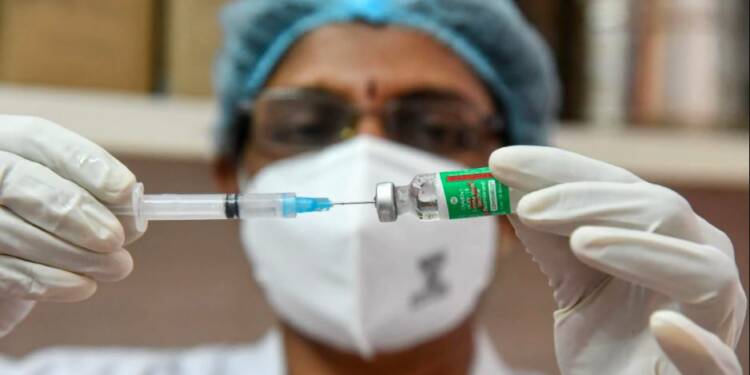A couple of days ago, the central government announced that India was opening its mass vaccination program to all individuals above the age of 18 from May 1. The biggest change introduced in the process is that states can now buy coronavirus vaccines directly from manufacturers – who can release up to 50 per cent of their supply for this purpose at a “pre-declared price”. However, there have been news stories swirling around which have planted seeds of hesitancy amongst the public.
The screaming sensational headline stories of people testing positive despite taking the vaccine has provoked the all-important question, “Why should we take the vaccine if we are still going to test positive?” The doubt is understandable. But there is a proper logical explanation as to why people are still testing positive.
The answer to the question is, none of the COVID-19 vaccines, either manufactured in India or abroad can magically help COVID-19, cease to exist. Simply put, the vaccines help the human body develop antibodies, strengthening the immune system to fight the virus if it attacks the human body. Moreover, after you get a vaccine shot, it takes your immune system a few weeks to build up protection against the virus.
The two vaccine doses ensure that an individual need not be hospitalised as the symptoms of COVID remain mild, giving enough time to recover with minimum rest. Otherwise, the infected patient might end up in a hospital where the chances of survival become more of a lottery, especially in the current climate.
A woman named Ranjana living in the capital city’s Rohini had received both jabs of the COVID-19 vaccine. However, she tested positive for the virus a few days later. Being a diabetic patient, the infection could have potentially proved fatal for her but because she had been inoculated and the body had started producing the anti-bodies, Ranjana was not hospitalised and recovered with minimum fuss.
The vaccine is still the second line of defence to protect oneself from COVID-19. The first trick in the book is still masking up, washing hands and maintaining a metre distance from fellow humans.
“Studies have shown that the risk of getting virus decreases when people get vaccinated. It does not mean there are zero chances,” said Indian Institute of Public Health (IIPH) Epidemiologist, Dr Rajeev Sarkar.
Another health expert from Apollo Hospital echoed Dr Rajeev Sarkar’s statements. “We know of cases of the infection reported post-vaccination, even after taking two doses. But these cases are largely where the beneficiaries have had very mild symptoms. The vaccine at least reduces the severity of the infection and chances of mortality,” said Dr Avdhesh Bansal, a pulmonologist at the Apollo hospital.
While some people are casting aspersions over the varying degree of efficacy rates of different vaccines, the simple upshot of every single vaccine is that 90-100 per cent protect an inoculated individual from being hospitalised, unless it is some rare case of co-morbidities mixing up with coronavirus.
It is imperative to note that the efficacy of the influenza vaccine is only around 40 to 60 per cent. And yet people are willing to take the influenza vaccine despite its efficacy not being extremely high. With COVID vaccines having efficacy above 80 per cent, with some even breaching the 90 per cent mark, it seems a safe bet to take the vaccine.
Any anti-vaxxer trying to persuade you to ditch the vaccine by painting a horrific, dystopian picture should just be asked the basis of his hypothesis. After all which situation is more horrific? Our near and dear ones receiving both jabs and sitting at their homes peacefully or they not receiving any jabs and risking their lives every single time they step out of the comfort of their homes?
With daily cases nearly touching the three-lakh mark, those above 45 should get immediately jabbed while those above 18, should enrol pronto when the vaccination drive opens on May 1. We all are still far from achieving herd immunity against COVID-19 and vaccines are our best shot to beat the virus. Do not listen to sensational headlines.



























